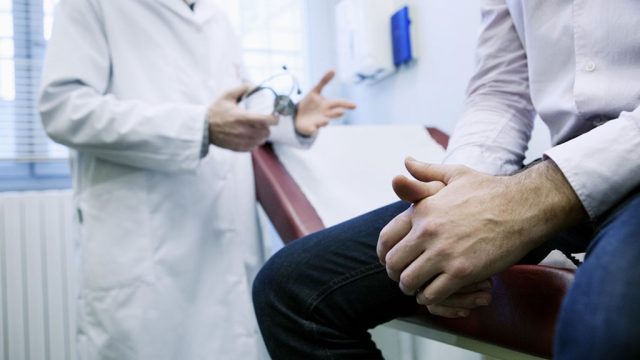I Had My Prostate Removed After Being Diagnosed with Cancer. Here’s Why

After I was diagnosed with prostate cancer, my doctor said I had two options: radiation therapy or what he called “the gold standard,” which is to surgically cut it out. It didn’t take long to decide. I wanted my prostate sitting in a jar on someone’s shelf—not in my body.
One of the best urologic surgeons in the country works in Boston, not far from my home in Concord, New Hampshire. I read about his “nerve-sparing techniques” that supposedly preserve sexual functioning, so I visited him. He wasn’t the most personable guy, but he told me he cuts prostates out of 200 men with prostate cancer a year.
I thought to myself, I’m not looking to make a friend—I want a guy who is really good at what he does and gets paid well for it. I want a guy who lives on the North Shore in the most expensive house and drives the most expensive car and is the best technician.
This was my guy.
The operation took 6 hours. He opened me up right below the belly button. I remember waking up in the hospital with a catheter, not feeling great. I was hungry, and they were feeding me intravenously. They wouldn’t let me have solid food until I farted. Fart and you can eat, I kept thinking. Fart and you can go home.
When my catheter finally came out, I was totally incontinent. I had to wear a diaper for the next 5 months. That was miserable. I’m a lawyer; some days I’d be in court making an argument, and I could feel myself leaking. It was horribly distracting.
My sexual functioning suffered, too. I took Viagra for 4 or 5 months, and it didn’t work. I went back to the surgeon and told his physician’s assistant, “I’m ready to get back in the saddle,” and he said, “Let’s see if this stuff works.”
He pulled out a vial of a potent vasodilating medicine and showed me how to give myself an injection in the shaft of my penis. Now that’s a scary moment—standing over your organ with a hypodermic needle in your hand. It wasn’t painful, and it worked astonishingly well. I was 18 years-old all over again. The downside is that your erection lasts 4 hours.
I’m much older now and back to my old self. My brother Mark also had a prostatectomy. Our doctors have told us that our sons are at increased risk for prostate cancer. So I, for one, will encourage them to have the PSA. I’ve never second-guessed my decision. It means that I’ll get to see my kids get on with their lives. From my vantage point, there’s no reason not to have a PSA test.
For more on the importance of PSA testing and prostate cancer, read about the non-routine tests you should always demand from your doctor.
Editor’s Note: This article was originally published in a 2005 issue of Best Life magazine.